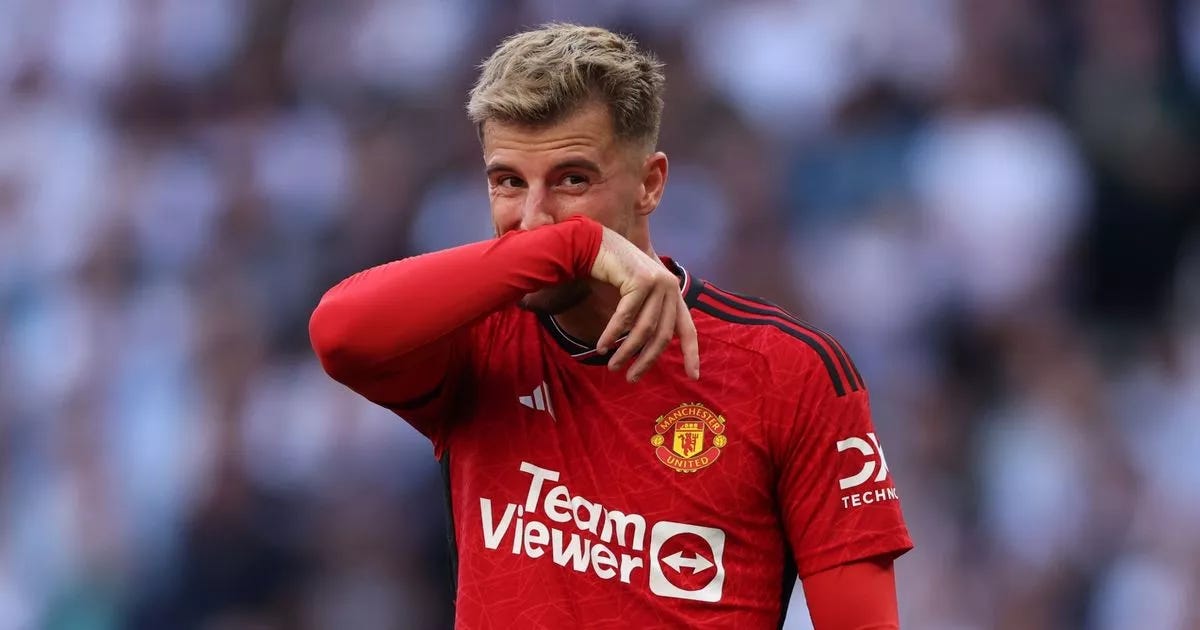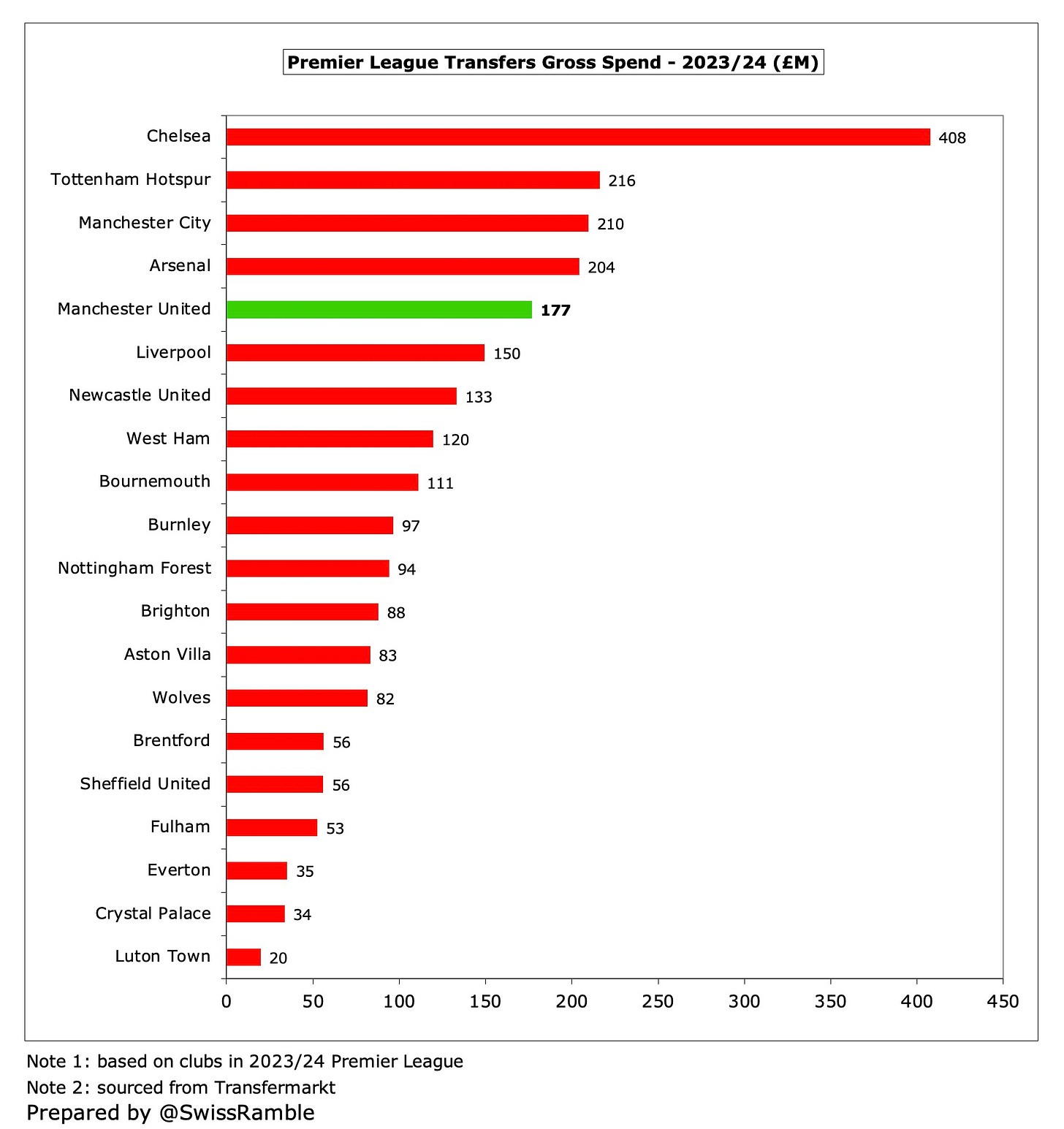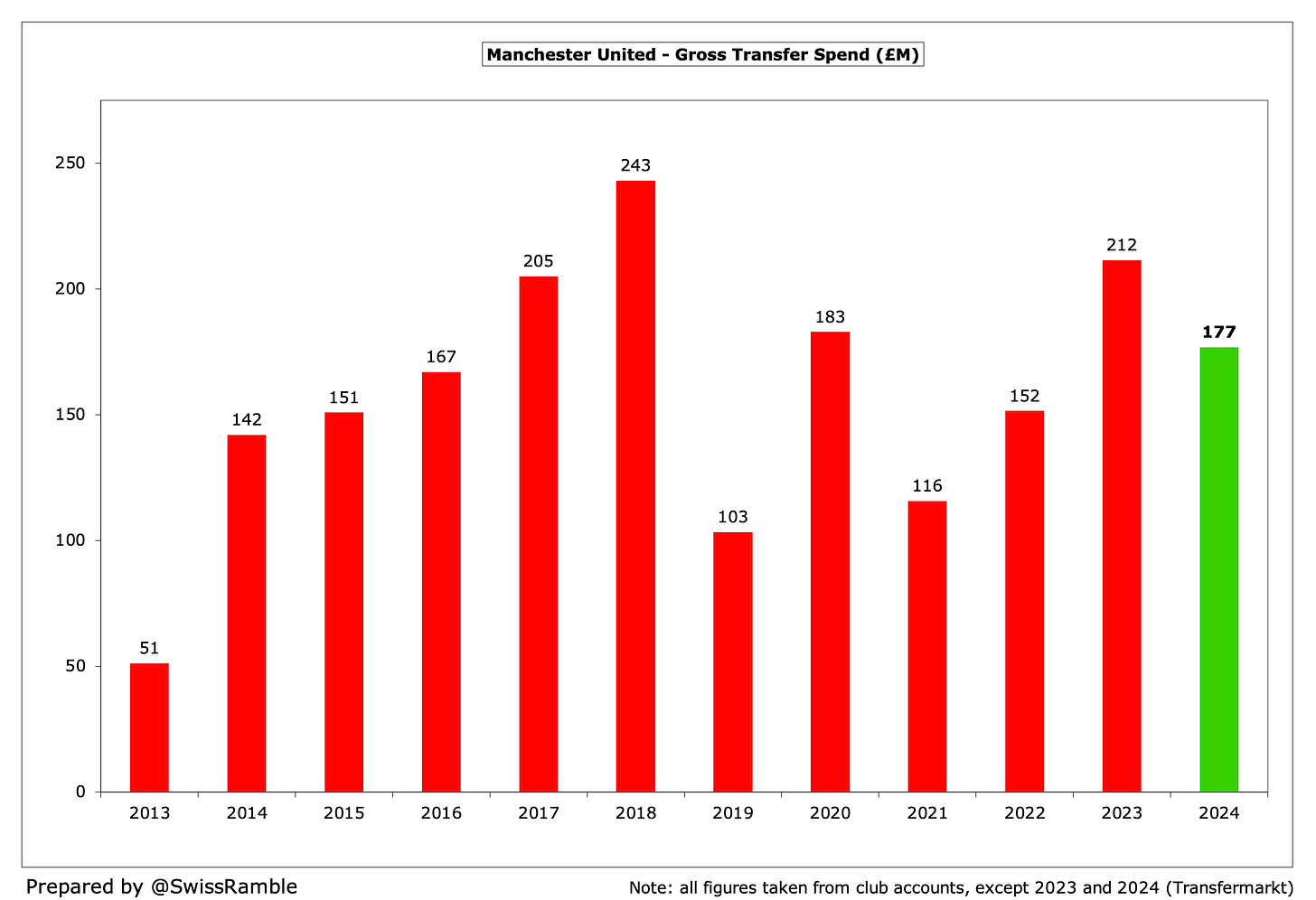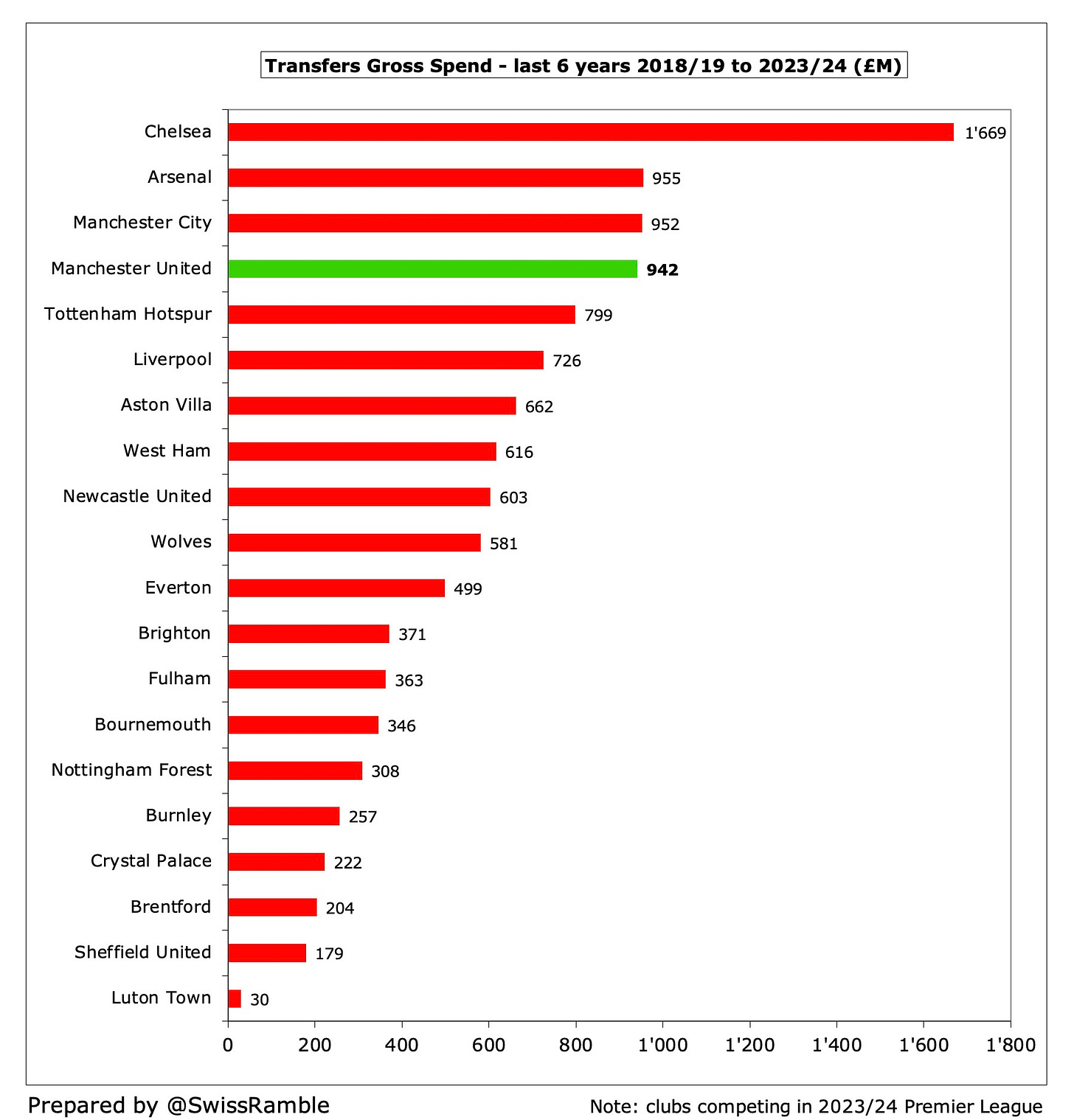The closing of the transfer window has left many Manchester United supporters unhappy with the club’s recruitment policy. Even though United have been crying out for a goal scorer of Harry Kane’s stature, they were never really in the hunt for England’s captain, while expensive options that would have strengthened their midfield, like Declan Rice and Moisés Caicedo, moved elsewhere.
Football fans are often accused of being overly entitled, but a recruitment campaign that ends up with United having to field Harry Maguire and Jonny Evans in central defence agains Arsenal cannot be considered a great success.
Some would point to the Glazers as being the reason for United being outspent by their rivals, not least because of takeover talk dragging on, but the club itself has briefed that it is constrained by the need to meet Financial Fair Play (FFP) regulations.
As a result, United have gone for cheaper alternatives this summer, typified by two players arriving on one-year loan agreements, namely Sofyan Amrabat from Fiorentina and Sergio Reguilon from Tottenham, instead of permanent deals.
Transfers
Nevertheless, United still spent £177m this summer, though this was less than a few of their peers. Obviously, it was much lower than the massive £408m Todd Boehly-fueled outlay at Chelsea, but it was also behind Tottenham £216m, Manchester City £210m and Arsenal £204m.
United’s gross transfer spend peaked at £243m back in 2017/18. Since then, they have only broken through the £200m barrier once, namely in Erik ten Hag’s first season. In fact, they have spent less on players in the last six seasons (£942m) than the preceding 6-year period (£959m), so their direction of travel is the opposite of most clubs.
That said, this is still just shy of a billion Pounds in six years, which is not too shabby, and almost exactly the same as Manchester City and Arsenal. United’s transfer expenditure has only really been significantly outpaced by Chelsea, but in fairness the Blues have been in a class of their own with an astonishing £1.7 bln outlay in this period.
One of the issues here is not so much the amount of money spent, as United’s managers have all been given a more than competitive budget, but how well these funds have been used.
Financial Fair Play
So how does FFP influence United’s behaviour?
First, it needs to be appreciated that there are actually two sets of regulations that need to be considered for FFP:
The Premier League’s Profitability and Sustainability rules
UEFA’s Financial Sustainability rules, including the new Squad Cost Control ratio.
Keep reading with a 7-day free trial
Subscribe to The Swiss Ramble to keep reading this post and get 7 days of free access to the full post archives.





